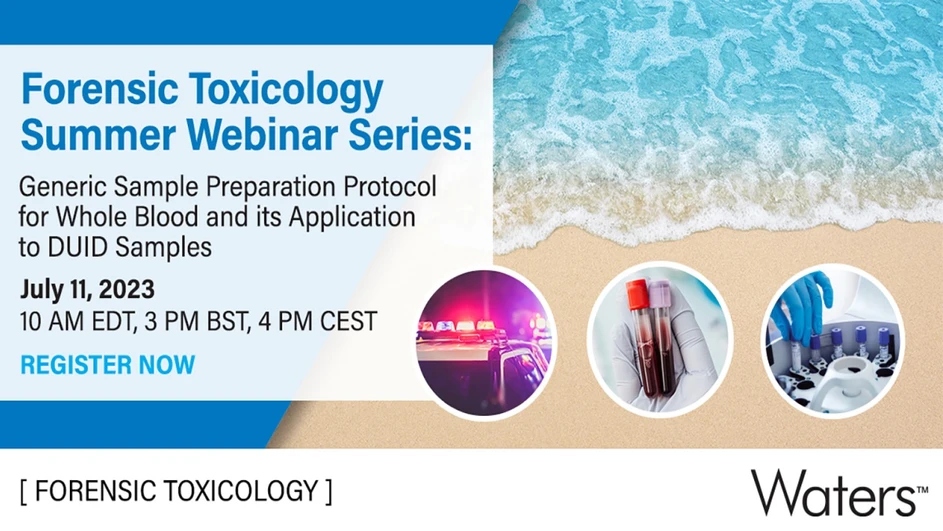A Fast, Simple and Generic Sample Preparation Protocol for Whole Blood and its Application to DUID Samples

Many illicit and prescribed medications are reported to impair drivers control of their vehicles, increasing the potential for road traffic accidents.
Analytical testing to support DUID legislation requires the quantitation of large panels of drugs exhibiting a wide range of chemical properties. To achieve a simple workflow to detect all relevant molecules optimally and at their specified concentrations presents some analytical challenges.
This presentation will detail a fast, simple, and generic sample preparation method for whole blood and its application to DUID samples. The developed sample preparation method in combination with UPLC-MS/MS will be presented and the benefits of this protocol for laboratories will be discussed.
Learning objectives from the webinar – what you will learn:
- A background to driving under the influence – what it is, the importance, legislation, and analytical requirements.
- Sample preparation protocol for whole blood samples and its application to DUID samples.
- How a simple generic method could be beneficial to forensic toxicology laboratories involved in DUID analysis.
Presenter: Emily Lee (Application Scientist, Forensics, Research & Development, Waters Corporation, Waters Corporation)
Emily Lee is an Application Scientist at Waters Corporation. Emily is part of a global team dedicated to the development of applications and analytical solutions for Forensics and Toxicology. Emily has gained experience in the use of various Waters mass spectrometry technologies for the analysis of forensic and toxicologically relevant analytes. Prior to working at Waters, Emily has experience working in forensic toxicology laboratories, with high sample turnover and fast turnaround times. Emily was involved in many aspects of day-to-day laboratory operations including sample extraction, analysis, method development and validation, analytical troubleshooting, and reporting. Emily also gained a MSc in Forensic Science (Toxicology) at the University of Huddersfield.
